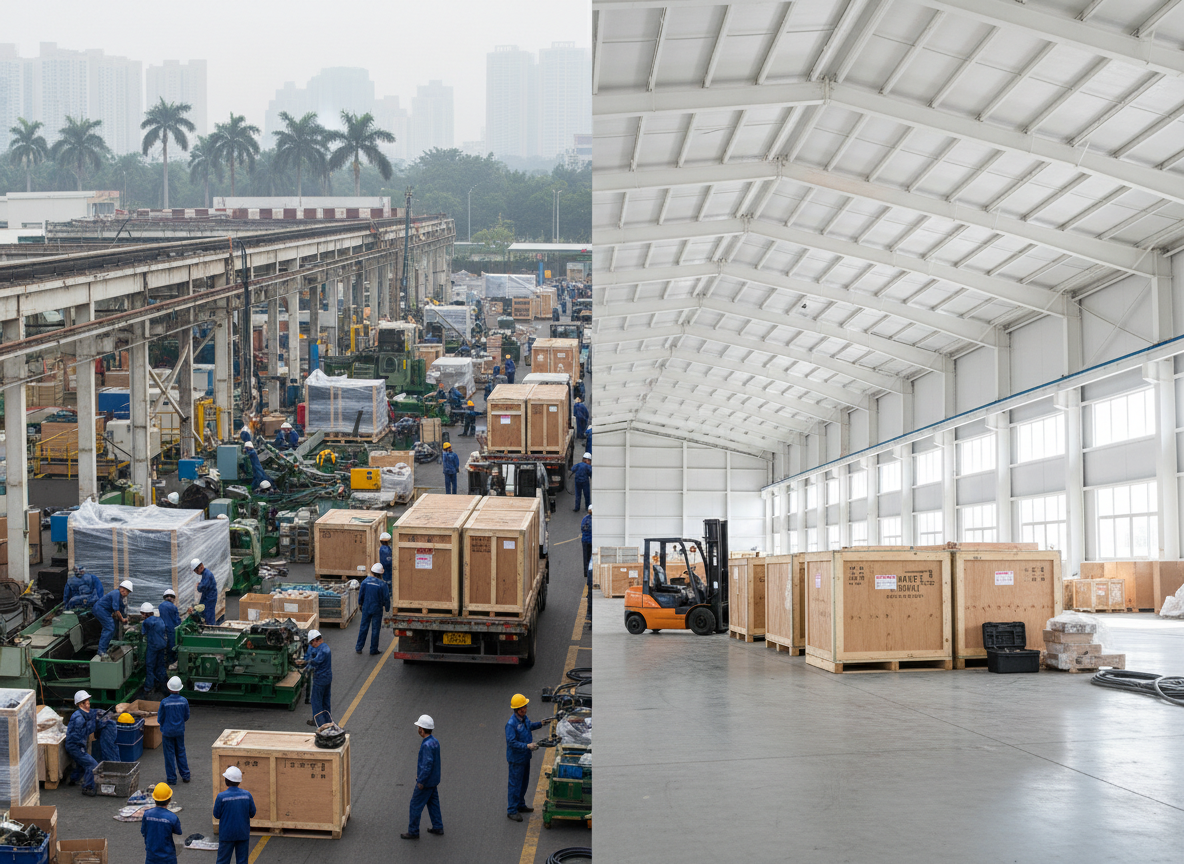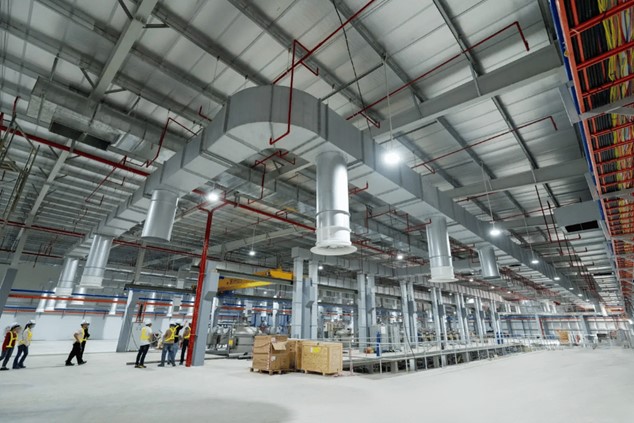Food safety audits play a crucial role in ensuring the quality and safety of food products in the food industry. These audits are essential to identify areas of improvement, assess compliance with food safety regulations, and maintain high standards of hygiene. In this comprehensive guide, we will explore the importance of food safety audits, the key benefits they offer, the components of a food safety audit checklist, the steps to conduct a successful audit, and how to overcome common challenges that may arise during the auditing process.
Understanding the Importance of Food Safety Audits
The food industry is highly regulated, and maintaining food safety is of paramount importance. Food safety audits help identify potential hazards, risks, and deficiencies in food handling and preparation practices. These audits provide businesses with valuable insights into their practices, allowing them to take corrective actions and ensure the safety and well-being of their customers.

Food safety audits are not only crucial for ensuring compliance with regulations but also for fostering a culture of continuous improvement within the food industry. By analyzing audit findings and implementing best practices, businesses can enhance their operational efficiency and minimize the risk of foodborne illnesses. Moreover, food safety audits play a vital role in promoting transparency and accountability throughout the supply chain, from food producers to retailers.
The Role of Food Safety Audits in the Food Industry
Food safety audits serve as a proactive measure to prevent foodborne illnesses and maintain consumer confidence. They help organizations assess their operations, identify areas of improvement, and implement practices that ensure the highest standards of food safety and hygiene. By conducting regular audits, businesses can demonstrate their commitment to quality and safety.
Furthermore, food safety audits contribute to the overall sustainability of the food industry by reducing food waste and preventing contamination. By identifying and addressing potential risks early on, audits play a crucial role in safeguarding the integrity of the food supply chain and promoting environmental responsibility. This proactive approach not only protects public health but also minimizes the economic impact of food safety incidents on businesses and the broader economy.
Key Benefits of Conducting Food Safety Audits
Conducting food safety audits offers several benefits to businesses in the food industry. Firstly, audits help identify any potential risks that may compromise the safety of food products, allowing for swift corrective actions. Additionally, audits help businesses comply with food safety regulations, protecting them from legal issues and reputational damage. Furthermore, audits enhance customer trust and loyalty, as they reassure consumers that their well-being is a top priority.
Moreover, food safety audits can also serve as a valuable learning opportunity for employees, fostering a culture of awareness and responsibility when it comes to food safety practices. By involving staff in the audit process and encouraging their participation, businesses can empower their workforce to proactively identify and address potential risks, ultimately creating a safer and more efficient food operation. This collaborative approach not only strengthens internal processes but also cultivates a sense of ownership and pride among employees in upholding the highest standards of food safety.
Components of a Food Safety Audit Checklist
A comprehensive food safety audit checklist covers several essential components. These components assess various aspects of food handling and preparation practices, cleaning and sanitation procedures, and compliance with food safety regulations.

When conducting a food safety audit, it is crucial to delve deeper into each component to ensure thorough evaluation and identification of potential risks. By examining these aspects meticulously, auditors can help food establishments enhance their food safety protocols and protect consumers from foodborne illnesses.
Evaluating Food Handling and Preparation Practices
One crucial aspect of a food safety audit is assessing how food is handled and prepared in the establishment. This includes evaluating food storage practices, cross-contamination prevention measures, cooking temperatures, and personal hygiene of the staff involved in food preparation.
Furthermore, auditors may also scrutinize food thawing processes, cooling methods, and the use of temperature logs to track the safe handling of perishable items. By ensuring that food is handled and prepared following best practices, establishments can minimize the risk of contamination and ensure the safety of their products.
Assessing Cleaning and Sanitation Procedures
A clean and hygienic environment is vital to prevent the spread of pathogens and maintain food safety. Audit checklist items should evaluate the effectiveness of cleaning and sanitation procedures, including the use of appropriate cleaning agents, cleaning schedules, and the overall cleanliness of food preparation areas.
In addition to routine cleaning practices, auditors may also assess the maintenance of kitchen equipment, the condition of food contact surfaces, and the presence of pest control measures. Proper sanitation not only ensures food safety but also upholds the reputation of the establishment and instills customer trust in the quality of the products served.
Checking Compliance with Food Safety Regulations
Compliance with food safety regulations is a critical aspect of maintaining food safety. Auditors should assess whether the establishment meets the necessary legal requirements, such as proper food labeling, allergen management, and the implementation of Hazard Analysis and Critical Control Points (HACCP) principles.
Moreover, auditors may review employee training records, documentation of corrective actions taken in response to previous audits, and the presence of a food safety management system. By ensuring compliance with regulations, food establishments demonstrate their commitment to upholding industry standards and prioritizing the well-being of their customers.
Steps to Conduct a Successful Food Safety Audit
Conducting a successful food safety audit requires careful planning, execution, and follow-up actions. By following these steps, businesses can ensure a thorough and effective audit process.
Preparing for the Audit: What You Need to Know
Prior to the audit, businesses should review their food safety policies, procedures, and documentation. This includes updating training records, reviewing standard operating procedures, and gathering all relevant documents required for the audit. It is vital to ensure that all staff members are aware of the upcoming audit and are prepared for any potential questions or requests from auditors.
Conducting the Audit: Best Practices to Follow
During the audit, auditors should follow established protocols and guidelines to ensure consistency and accuracy. They should conduct a thorough evaluation of all relevant areas, document their findings, and communicate any areas of improvement or non-compliance to the business. Open and constructive communication between auditors and the organization being audited is essential for a successful audit.
Post-Audit Actions: Analyzing and Implementing Changes
After completing the audit, it is crucial to analyze the findings and identify areas that require improvement. Businesses should develop an action plan to address any issues identified during the audit and implement changes accordingly. Regular follow-ups and re-audits can help monitor the progress and ensure continuous improvement in food safety practices.
Common Challenges in Food Safety Audits and How to Overcome Them
While food safety audits are crucial for maintaining high standards, they can present challenges to businesses. By being aware of these challenges and having strategies in place, organizations can overcome them effectively.
Dealing with Non-Compliance Issues
Non-compliance with food safety regulations can lead to severe consequences for businesses. To overcome this challenge, organizations should ensure they have robust procedures in place to monitor and enforce compliance. Regular training, internal audits, and corrective actions can help address non-compliance issues proactively.
Addressing Lack of Staff Training
Proper training of staff members is essential to maintain food safety standards. Inadequate training can result in mistakes and potentially compromise the safety of food products. To overcome this challenge, businesses should invest in comprehensive training programs, regular refresher courses, and clear communication channels to ensure that all employees are knowledgeable about food safety practices.
Managing Inadequate Documentation
Proper documentation is critical in food safety audits, as it serves as evidence of compliance with regulations and best practices. Inadequate or incomplete documentation can hinder the audit process and raise concerns about the establishment's commitment to food safety. To address this challenge, organizations should implement robust record-keeping systems and regularly review and update their documentation to ensure its accuracy and completeness.
In conclusion, conducting food safety audits is essential for businesses in the food industry to ensure the quality and safety of their products. By understanding the importance of food safety audits, following a comprehensive checklist, conducting successful audits, and overcoming common challenges, organizations can maintain high standards of food safety and hygiene. Regular audits, combined with proactive measures, demonstrate a commitment to customer well-being and contribute to the long-term success of food businesses.
Enhance Your Food Safety Audits with Avatour
Embrace the future of food safety audits with Avatour, the cutting-edge platform transforming how you conduct inspections and ensure compliance. With our innovative 360° capture and collaboration technology, you can gain comprehensive visibility into your operations, streamline your audit processes, and foster a culture of safety and excellence—all while reducing travel costs and environmental impact. Learn more about Avatour and discover how our platform can elevate your food safety standards and operational efficiency.








